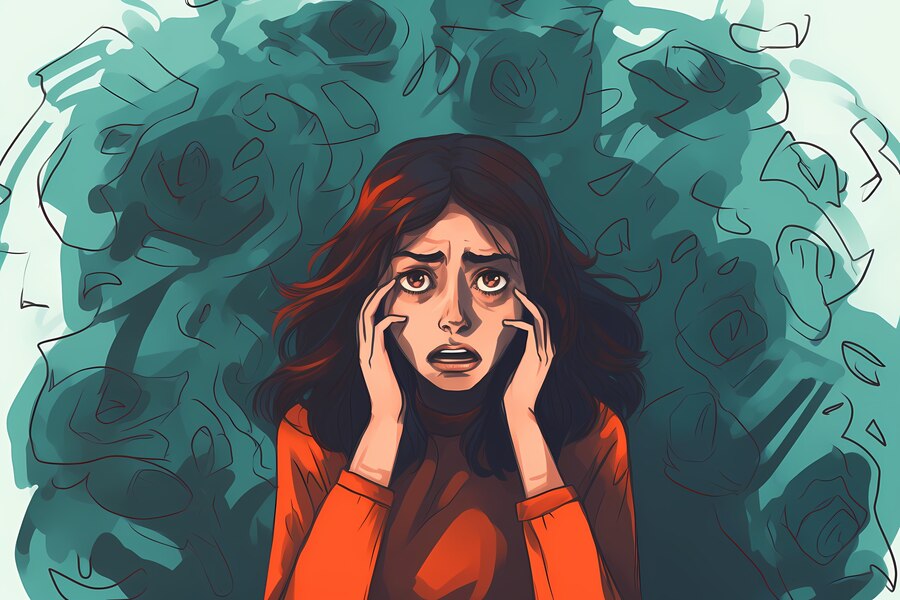In the calm embrace of the sunset, the silhouette stands alone, a sign of the isolation anxiety can create. However, beneath this illusion lies a universal truth: stress is a common phenomenon, affecting each of us at different levels. It is the first response wired into us, designed to protect us from impending threats Approach to Anxiety.
However, when stress becomes a constant companion, it dominates daily life with its relentless presence, affecting physical well-being, mental balance, and social cohesion. According to the Anxiety and Depression Association of America, millions of people suffer from anxiety disorders, reflecting its nature.
Seeking professional help, such as psychotherapy or medication, proves beneficial for many people navigating the labyrinth of depression. Complementary therapies such as veterinary medicine or functional nutrition offer alternative methods of healing and resilience.
Regardless of medical intervention, empowering ourselves with useful strategies can bring calm in the storm of anxiety. Here are the steps:

What is Anxiety?

Cultivate Mindfulness
Embrace awareness as a cornerstone of emotional resilience. By understanding the causes of stress, we regain agency over our responses. Instead of getting caught up, notice how your emotions flow with compassion and non-judgment.

Challenge Distorted Thoughts
Interrogate the veracity of anxiety-inducing thoughts. Distinguish between factual evidence and self-imposed narratives, unraveling the threads of doubt and insecurity. Journaling can serve as a reflective tool during moments of tranquility.
Honor Your Body
Acknowledge the intricate dance between mind and body during bouts of anxiety. Optimize well-being by moderating caffeine, nicotine, and alcohol intake. Incorporate mindful practices like qigong to harmonize the body’s rhythms and promote inner calm.
Embrace Purposeful Relaxation
Engage in relaxation techniques such as meditation, mindful breathing, or guided imagery. Cultivate moments of tranquility amidst daily routines, nurturing resilience in the face of adversity.
Curate Serene Spaces
Craft environments conducive to healing and rejuvenation. Surround yourself with soothing colors, natural light, and calming fragrances like lavender. Designate electronics-free sanctuaries to escape the cacophony of digital distractions.
Foster Connection
Initiate conversations about anxiety, transcending the stigma and isolation often associated with mental health struggles. Whether through therapy, confiding in trusted allies, or seeking solace in online communities, shared experiences offer validation and support.
In the tapestry of human existence, anxiety is but one hue, painting the complexities of our inner landscapes. Acknowledging its universality, we pave the path toward collective healing and resilience. Remember, amidst the solitude of anxiety, you are never truly alone.
Here are some frequently asked questions (FAQs) about anxiety:
- What is anxiety?
- Anxiety is a normal emotional response to stress or perceived threats, but when it becomes excessive or persistent, it can interfere with daily life.
- What are the symptoms of anxiety?
- Symptoms of anxiety can include feelings of worry or fear, restlessness, difficulty concentrating, muscle tension, rapid heartbeat, sweating, and trouble sleeping.
- What causes anxiety?
- Anxiety can be caused by a combination of factors, including genetics, brain chemistry, personality, and life events such as trauma or stress.
- How is anxiety diagnosed?
- Anxiety disorders are typically diagnosed based on a thorough assessment of symptoms, medical history, and sometimes psychological evaluations conducted by a healthcare professional.
- What are the different types of anxiety disorders?
- Common types of anxiety disorders include generalized anxiety disorder (GAD), panic disorder, social anxiety disorder, specific phobias, and obsessive-compulsive disorder (OCD).
- Can anxiety be treated?
- Yes, anxiety can be treated with various approaches, including therapy (such as cognitive-behavioral therapy), medication (such as antidepressants or anti-anxiety medications), lifestyle changes, and complementary therapies.
- What can I do to manage my anxiety?
- Strategies for managing anxiety include practicing relaxation techniques, maintaining a healthy lifestyle (including regular exercise and balanced nutrition), seeking support from friends, family, or support groups, and learning stress management skills.
- Is anxiety common?
- Yes, anxiety is one of the most common mental health disorders, affecting millions of people worldwide. It’s important to remember that you’re not alone in experiencing anxiety.
- When should I seek help for my anxiety?
- You should consider seeking help for anxiety if it significantly interferes with your daily life, relationships, work, or overall well-being. If you’re unsure, consulting a healthcare professional can provide guidance.
- Where can I find more information and support for anxiety?
- There are many resources available for learning more about anxiety and finding support, including mental health websites, books, support groups, hotlines, and healthcare professionals such as therapists or counselors.

